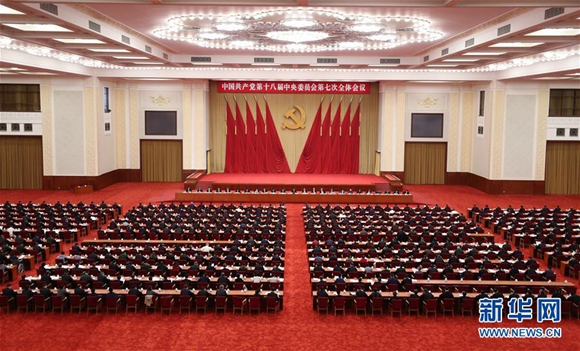Beijing has drafted a document of suggestions on promoting the integrated development of culture, science and technology.
The document provides specific implementation guidelines for the related industries, including setting up the certification standard for the demonstration enterprises for the integrated development between culture and science and technology.
A new economic engine
Beijing has five demonstration bases of integrated development between culture and science and technology at the national level.
“Software, internet and computer services — mainly animation game, online literature and new media — dominate the cultural and creative industry in Beijing,” Du Feijin, director of the Publicity Department of the Beijing Municipal Committee of the CPC, said.
Du said the total revenue of the software, internet and computer services in 2016 reached 701.1 billion yuan (US$106.6 billion), accounting for 39.2 percent of the revenue of the cultural and creative industry in Beijing.
Xu Qiang, director of the Beijing Science and Technology Commission, said “Beijing has a great atmosphere for innovation and entrepreneurship in the cultural and creative industry.”
According to him, by the end of 2016, there are 3,047 high technology enterprises in the cultural industry in Beijing, about 20 percent of the number throughout China.
Du said that the integrated development of the culture and science and technology industries has become the new engine for the economic development of Beijing.
Supportive policies and copyright protection
The document stipulates 10 major tasks, including setting up the certification standard of the enterprises of integrated development of culture, science and technology, promoting the use of technology in protecting the history and culture of Beijing, and improving the financing service system.
The document also provides specific implementation guidelines, such as requiring the city to identify the qualified enterprises that meet the certification standard once a year.
However, Du said support for cultural enterprises by the city fall short in comparison with support for science and technology enterprises, and policies on regulating and supporting the integrated industry are yet to be in place.
“Most cultural enterprises lack the capability of independent innovation,” Du said.”The investment in research and development in cultural enterprises is not sufficient.”
What’s more, copyright protection for cultural properties remains a challenge in the integrated development industry, Haidian District party secretary Yu Jun said.
Beijing’s science and technology advantages
By the end of September, there were more than 470,000 scientific and technological enterprises in Beijing, over 1,000 research institutes, and other workshops and organizations that provide platforms for the integrated development of culture and science and technology.
Universities and colleges in Beijing have set up new academic programs to train interdisciplinary talents in order to meet the needs of the integrated development.
read more








